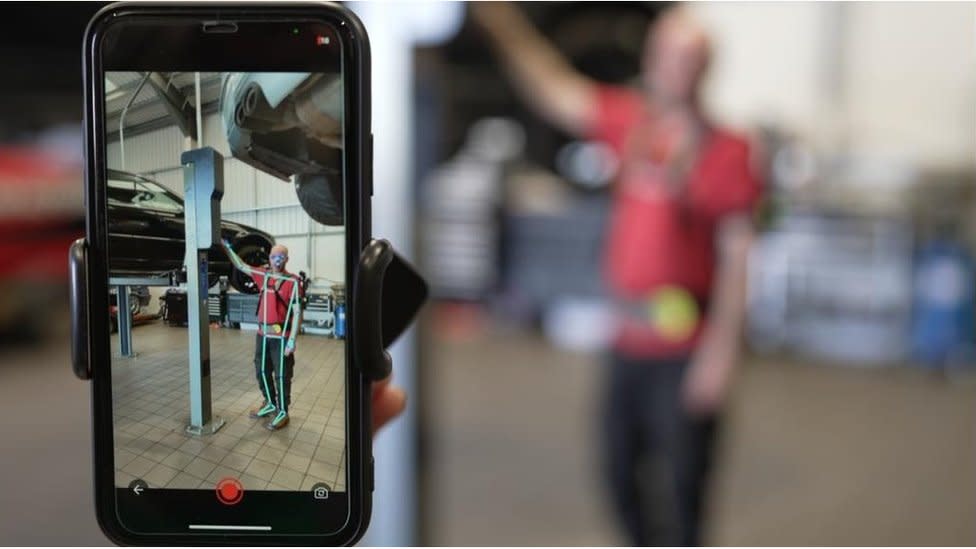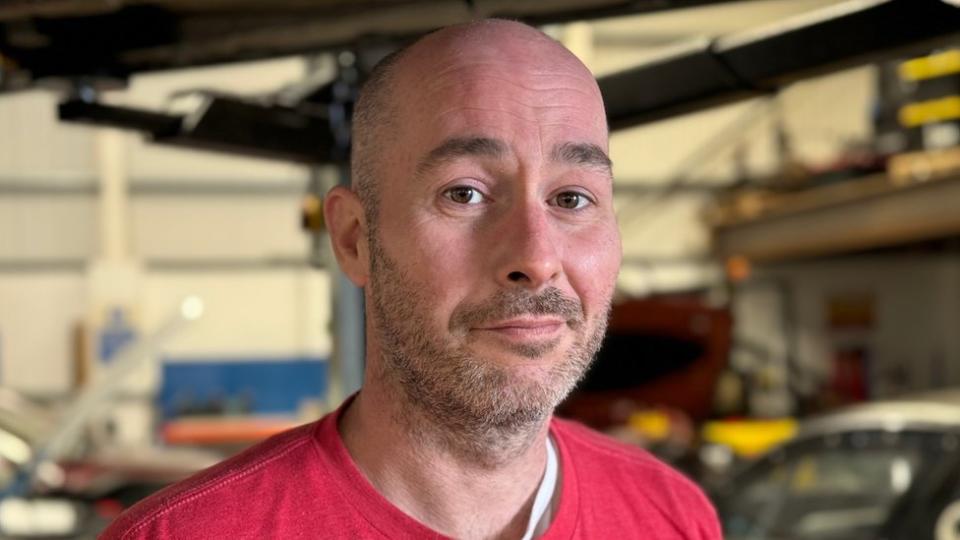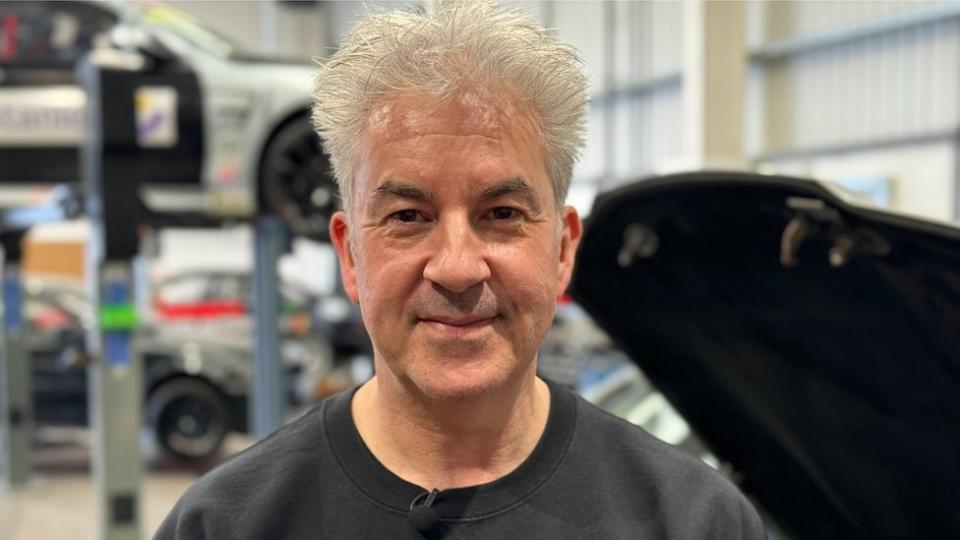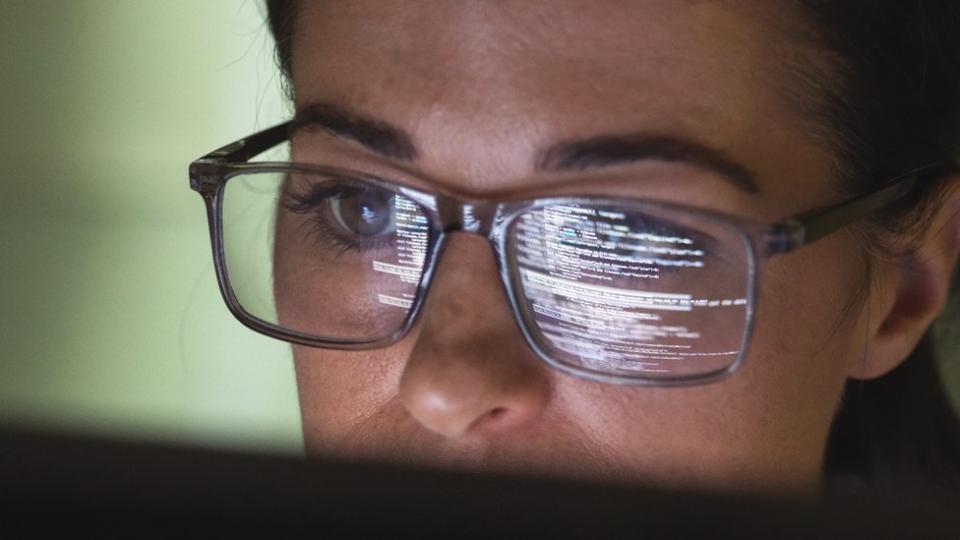'AI can help people keep physical jobs for longer'

The debate about the impact of artificial intelligence (AI) on jobs is growing. The Institute of Public Policy Research (IPPR) reports that up to eight million workers in the UK could be vulnerable as the technology becomes capable of performing their tasks. But in Cambridgeshire, a company is using AI to try to extend the working life of people with physical jobs.
Being a mechanic can be tough on the body. There is a lot of bending, lifting and stretching in order to work underneath vehicles.
Jobs like these can lead to muscular-skeletal problems, which cause pain in the back, joints and muscles. In 2022-23 it was affecting 473,000 workers in the UK.
Some people are forced to give up jobs they love because of it, but at German Autowerks in Kimbolton they have used AI to try to prevent that.

Technicians were filmed as they carried out their everyday tasks. AI then analysed the video and identified the pressure points and potential problem areas on the body.
The company then used the information to select specific exoskeletons from the open market for staff to wear - they are powered harnesses which take some of the strain of the job away from the body.

Technician John McGaughey said "after a few minutes it's like wearing clothing, you don't realise it's there".
"A wheel is about 20kg but this makes it feel half the weight, and you can enjoy the work because you're not feeling the aches and pains," he said.
The AI technology is provided by Hertfordshire-based Stanley Handling, which believes systems such as these will become standard Personal Protection Equipment (PPE) in future - like a hard hat or hi-vis jacket.

"It's about protecting people," said the company's solutions consultant, Andre Jutel.
"There are a lot of difficult manual jobs out there and we have an ageing workforce. The average worker may not be able to retire at 65 - it might have to be 75. This type of technology assists them in working for longer."
But could and should jobs like this be automated instead?
Andre Jutel said in some cases it was impossible or impractical, adding: "Businesses are dynamic. They change and certain tasks aren't needed any more.
"I've seen a £100,000 piece of machinery become redundant in a few months because it's designed for a set purpose. Humans are flexible and adaptable - that's why we think it's better to focus on helping them."

Artificial intelligence already assists workers in many professions. Doctors use it to help diagnose and treat patients, police forces use it to perform admin tasks and free up officers, teachers use it to save time on lesson planning, and farmers use it to predict harvesting times.
In each of these situations, and with the ergonomic analysis of the mechanics, AI performs tasks faster than a human could - but a person always checks the results. There are concerns that without policy to protect them, many jobs will be lost to AI rather than supported by it. Last year, BT announced plans to replace thousands of jobs with AI technology.
The Institute of Public Policy Research (IPPR) believes that secretarial, customer service and administrative roles are most imminently at risk, which affects a greater proportion of women.
Carsten Jung, senior economist at IPPR, said: "AI is set to be a game changer for millions of us. Many firms are already investing in it, and it has potential to speed up many more tasks as more businesses adopt it.
"A jobs apocalypse is not inevitable - government, employers and unions have the opportunity to make crucial design decisions now that ensure we manage this new technology well. If they don't act soon, it may be too late."
The government wants the UK to be a global leader in AI. The Department for Science Innovation and Technology said: "AI is helping to make our jobs safer and more satisfying... but we must also prepare for a near future where the most powerful systems are significantly more capable.
"AI can and must remain a force for the public good, and we will ensure that is the case as we develop our policy approach in this area."
Follow East of England news on Facebook, Instagram and X. Got a story? Email eastofenglandnews@bbc.co.uk or WhatsApp 0800 169 1830


